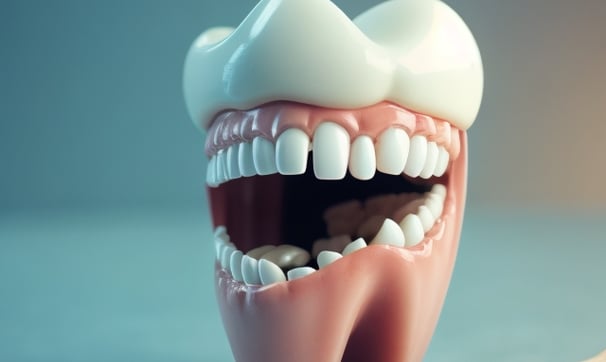Can I Glue My Tooth Back In?
GLUE TIPS


This blog post guides readers on how to handle a dental emergency when a tooth is knocked out, emphasizing the importance of seeking immediate professional dental care over attempting to reattach the tooth themselves.
Can I Glue My Tooth Back In? A Guide to Handling Dental Emergencies
Dental emergencies can be distressing, and a common question that arises is whether it's possible to glue a dislodged tooth back in place. In this blog post, we'll delve into the details of dental emergencies, discussing what to do when a tooth is knocked out and whether attempting to reattach it yourself is a viable option.
Understanding Dental Emergencies:
Dental emergencies encompass a range of situations, from cracked teeth to knocked-out teeth, and they require prompt attention to prevent further damage and ensure the best possible outcome.
When a Tooth Gets Knocked Out:
A knocked-out tooth, also known as an avulsed tooth, is a serious dental emergency that demands immediate action. Here's what you should do:
Handle with Care: Pick up the tooth by the crown (the part that's normally visible in the mouth), avoiding contact with the roots.
Rinse Gently: If the tooth is dirty, rinse it gently with milk or saline solution. Never use tap water as it can damage the delicate cells on the root's surface.
Reposition Carefully: If possible, try to reinsert the tooth into its socket, holding it in place with gentle pressure. Ensure it's facing the right way and don't force it.
Store Properly: If reinsertion isn't feasible, keep the tooth moist by placing it in a container of milk or between your cheek and gum. It's essential to keep it from drying out.
Seek Immediate Dental Care:
Attempting to glue a tooth back in place yourself is not advisable. Dental professionals have the expertise and equipment needed to assess the situation and handle it properly. Here's what you should do:
Call Your Dentist: Contact your dentist immediately or visit an emergency dental clinic. Time is of the essence in potentially saving the tooth.
Protect Your Tooth: While en route to the dentist, continue to keep the tooth moist in milk or your saliva to preserve its viability.
The Importance of Professional Evaluation:
Dentists are trained to assess the condition of the tooth, the socket, and surrounding tissues to determine whether reattachment is possible. They will also assess any potential damage to the root and the likelihood of successful reimplantation.
Conclusion:
While it may be tempting to try and glue a knocked-out tooth back in place, the best course of action is to handle it gently, keep it moist, and seek immediate professional dental care. Dentists are equipped to evaluate the situation, provide necessary treatment, and offer the best chance of saving the tooth. In dental emergencies, time is of the essence, so swift action and professional guidance are key to a successful outcome.
